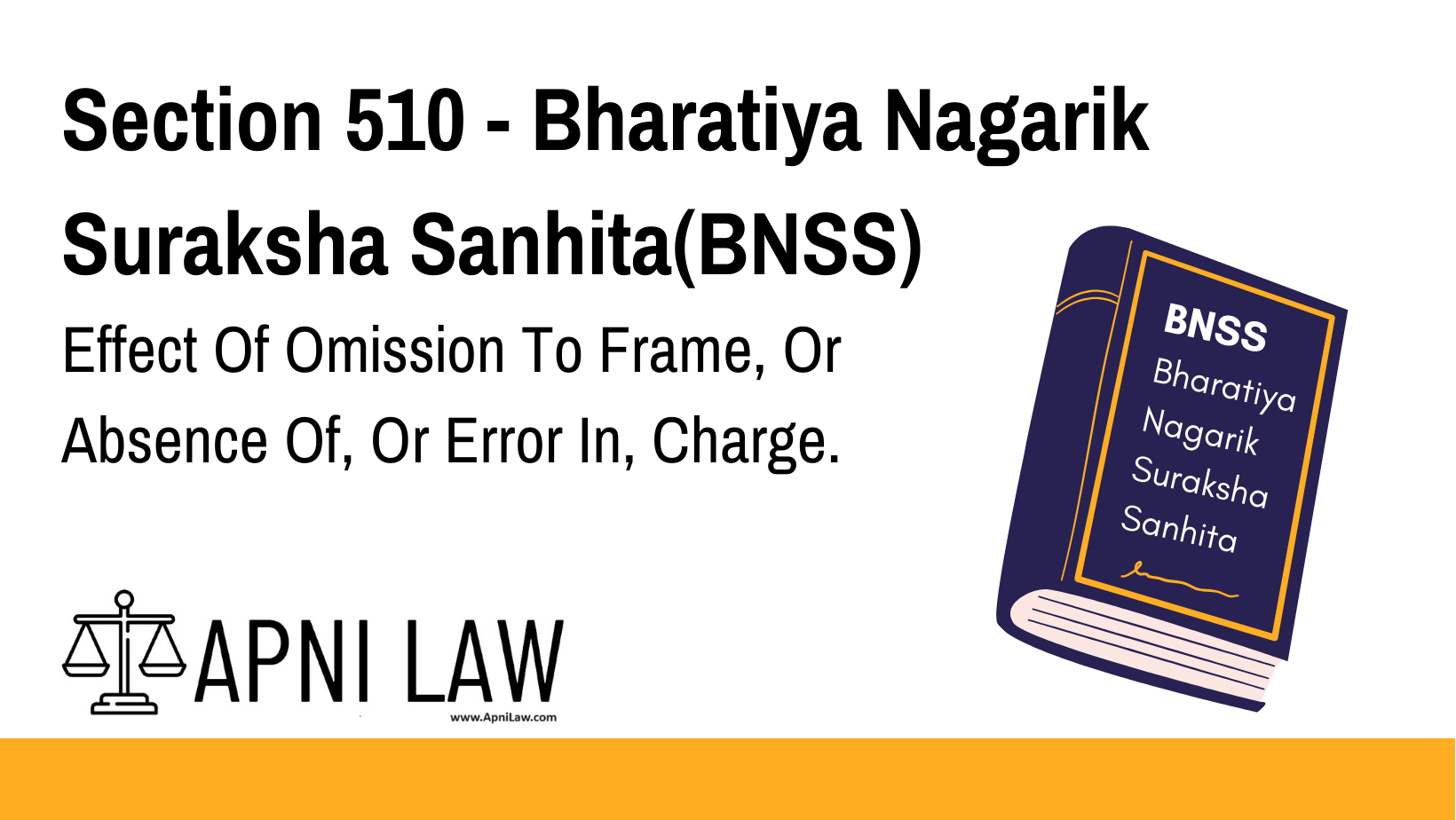Code: Section 510 BNSS
(1) No finding, sentence or order by a Court of competent jurisdiction shall be
deemed invalid merely on the ground that no charge was framed or on the ground of any
error, omission or irregularity in the charge including any misjoinder of charges, unless, in
the opinion of the Court of appeal, confirmation or revision, a failure of justice has in fact
been occasioned thereby.
(2) If the Court of appeal, confirmation or revision, is of opinion that a failure of
justice has in fact been occasioned, it may,—
(a) in the case of an omission to frame a charge, order that a charge be framed,
and that the trial be recommenced from the point immediately after the framing of the
charge;
(b) in the case of an error, omission or irregularity in the charge, direct a new trial
to be had upon a charge framed in whatever manner it thinks fit:
Provided that if the Court is of opinion that the facts of the case are such that no valid
charge could be preferred against the accused in respect of the facts proved, it shall quash
the conviction.
Explanation of Section 510 BNSS
This section deals with the consequences of procedural errors related to the framing of charges in a criminal trial. It ensures that minor errors do not lead to the invalidity of proceedings unless they result in a failure of justice.
Key Provisions:
- No Automatic Invalidity: A conviction is not automatically invalid due to errors in framing charges.
- Impact on Justice: Only if the error affects the fairness of the trial, it may lead to retrial or quashing of the conviction.
- Appeals and Revisions: These provisions are applicable to Courts of appeal, confirmation, and revision.
Illustration
Example 1: Omission to Frame a Charge
A trial court proceeds with the trial of an accused without framing a formal charge. However, the accused is fully aware of the accusations.
Outcome: The appellate court may order the framing of the charge and the trial to continue from that point.
Example 2: Error in Framing of Charge
The charge framed against an accused is legally incorrect, but the accused was not prejudiced.
Outcome: The appellate court may direct a new trial with a properly framed charge.
Example 3: No Valid Charge Possible
The facts presented during the trial do not support any valid charge against the accused.
Outcome: The court will quash the conviction since no charge can be framed based on the evidence.
Common Questions and Answers on Section 510 BNSS
1. Can a conviction be set aside just because there was no charge framed?
- Answer: No, unless the failure caused a miscarriage of justice.
2. What happens if there’s an error in framing the charge?
- Answer: The appellate court may order a new trial or direct corrections, depending on the nature of the error.
3. Does this apply to appeals?
- Answer: Yes, it applies to Courts of appeal, confirmation, and revision.
4. What does “failure of justice” mean in this context?
- Answer: It means that the accused’s right to a fair trial was compromised due to the error.
5. Can the court quash a conviction even if the trial was conducted properly?
- Answer: Yes, if the evidence does not support any valid charge.
Conclusion
Section 510 BNSS ensures that technical errors in the framing of charges do not automatically invalidate proceedings. The focus remains on the fairness of the trial and whether the accused’s rights were compromised.








